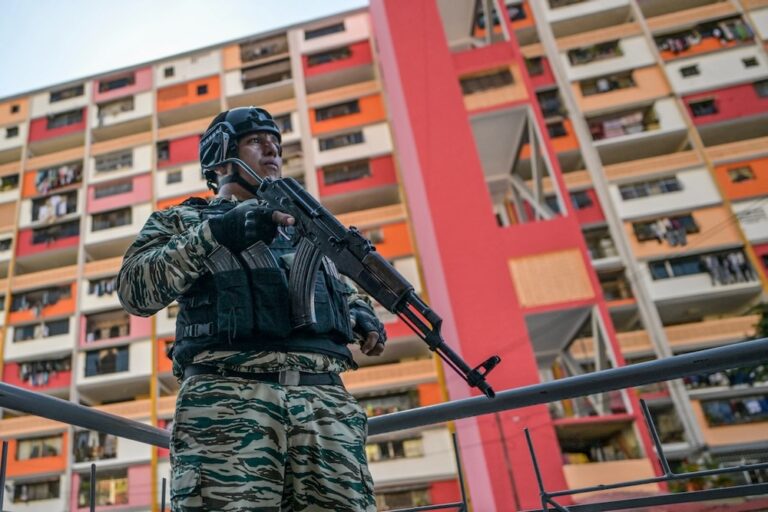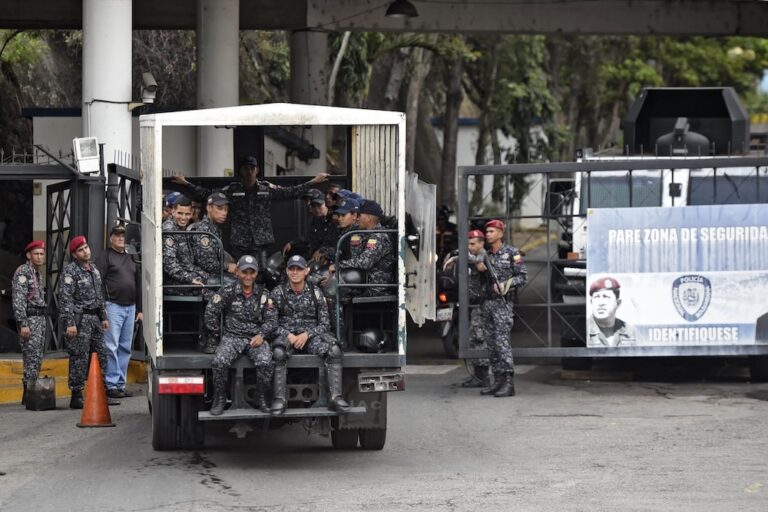Regional networks Al Sur; Alianza Regional por la Libre Expresión e Información; IFEX-ALC and Voces del Sur reject the International Cooperation Bill currently under discussion in the National Assembly in Venezuela as it poses a risk to the existence of social and civil organizations in the country by undermining the right to freedom of association.
For more than 15 years this kind of legislative initiatives has been used as a threat in Venezuela to force organizations to align their work with the interests of the state, with the aim of hindering or preventing their activities by imposing conditions that go against the principles of independence and autonomy of civil society. The current bill:
- Expressly criminalizes non-governmental organizations;
- Subjects international cooperation to “guidelines dictated by the president of the Republic”; and
- Excludes human rights as legitimate objectives of such cooperation.
The proposed law would create a state body mandated with unilaterally managing funds and establish a new registry that would require companies to provide information about funding agents, the uses of the resources received, and the personal details of beneficiaries, including victims of serious human rights violations. If organizations fail to meet these requirements, they could be declared illegal and their members could face legal action. Thus, we would soon see in Venezuela the same process we are seeing in Nicaragua, with organizations being shut down and activists being criminalized.
In this context, millions of people would lose the direct and indirect benefits provided by assistance programs, humanitarian aid, social development, and restored access to basic social and economic rights, including access to water, education, health, food, and sports. Moreover, this would obstruct the human rights advocacy work that civil society organizations conduct and which makes it possible to hold authorities accountable and provides protection against state abuses. In this sense, we are concerned, in particular, over the impact this law could have on the right to freedom of expression.
We are worried that this initiative falls under the same practices denounced in other countries in the region, such as Cuba, Guatemala, El Salvador, and Nicaragua, which seek to criminalize and eliminate sectors committed to securing, promoting, and defending human rights. A trend toward discrediting civil society is observed in Mexico, Brazil, and El Salvador, and it could be replicated by other governments that deploy stigmatizing discourses and promote increasingly undemocratic practices.
To ensure a healthy democracy, we need to protect civil society’s capacity to operate, by fostering the conditions for it to be strong, rich, and diverse. Thus, we Al Sur; Alianza Regional por la Libre Expresión e Información; IFEX-ALC and Voces del Sur call on:
– Civil society in the region to denounce this and various initiatives aimed at restricting the civic space in our countries, to be alert to stigmatizing practices, to promote solidarity, and to speak out against and vigorously reject these actions that undermine the right to defend human rights.
– The region’s states to emphatically reject attempts aimed at limiting the civic space and to recognize the importance of social and civil organizations in the construction of a solid and lasting democratic society.
– The Venezuelan authorities to comply with national and international legal standards and refrain from using legal means to criminalize, persecute, and outlaw the autonomous and independent work of social and civil organizations.



